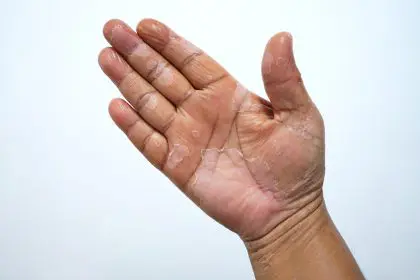Getting clear skin shouldn’t feel like signing your life away, but for many people seeking Accutane (isotretinoin) treatment, that’s exactly what it feels like. Here’s what you need to know about this powerful acne medication that’s helping thousands clear their skin — and why some patients are pushing back against the system.
Why Accutane is basically the nuclear option for acne
Let’s get real: When nothing else works, Accutane becomes the last resort superhero of the skincare world. This vitamin A-derived medication literally shrinks your oil glands like a boss, stopping acne at its source. The success rate? A whopping 80% of users see their severe acne vanish, often permanently.
The side effects nobody warns you about
Sure, everyone knows about the dry lips (hello, permanent ChapStick addiction), but Accutane comes with a whole menu of potential side effects that might make you think twice:
- Sahara-level skin dryness everywhere (yes, everywhere)
- Joint pain that might make you feel twice your age
- Mood changes that can sneak up on you
- Fatigue that makes your morning coffee feel useless
- Vision changes, especially at night
The pregnancy prevention program that’s raising eyebrows
Here’s where things get controversial. The iPledge program, created by the FDA, turns getting Accutane into something that feels like joining a secret government program. For anyone who can become pregnant, this means:
- Monthly pregnancy tests (even if you’re not sexually active)
- Using two forms of birth control
- Regular check-ins with your doctor
- Online quizzes about pregnancy prevention
- Strict timing windows for filling prescriptions
The hidden discrimination in Accutane access
The numbers don’t lie: Non-white patients and those who aren’t fluent in English are more likely to stop treatment early. Why? The complex iPledge system creates barriers that disproportionately affect certain communities. Nearly half of non-white patients drop out before finishing treatment, often due to system complications rather than medical reasons.
The reproductive rights controversy nobody’s talking about
In our current political climate, the iPledge program hits differently. Some patients feel like they’re trading their reproductive privacy for clear skin. The program requires detailed information about sexual activity and contraception use, raising concerns about medical privacy and bodily autonomy.
What dermatologists want to change
The medical community isn’t staying silent. Dermatologists across the country are pushing for reforms to make the process less burdensome while maintaining safety. The American Academy of Dermatology has proposed changes that would:
- Simplify the monthly requirements
- Reduce administrative hurdles
- Make the system more user-friendly
- Improve access for all communities
The future of Accutane might look different
Change is brewing in the world of isotretinoin treatment. While the medication remains a gold standard for severe acne treatment, there’s growing pressure to modernize the system. Healthcare providers and patients alike are advocating for a more balanced approach that maintains safety without compromising dignity or access.
The bottom line
Accutane remains a game-changer for severe acne sufferers, but the path to clear skin shouldn’t feel like an obstacle course. As conversations about healthcare access and reproductive rights evolve, the way we handle isotretinoin treatment needs to change too.
For anyone considering Accutane, knowing these realities isn’t meant to scare you away — it’s about being prepared. Clear skin is possible, and understanding the full picture helps you make informed decisions about your health journey. The medication works, but the system surrounding it needs a serious upgrade to serve everyone fairly and respectfully.
The road to clear skin might be complex, but staying informed helps you navigate it like a pro. Remember: Your health journey is valid, and advocating for better treatment access benefits everyone in the skincare community.














